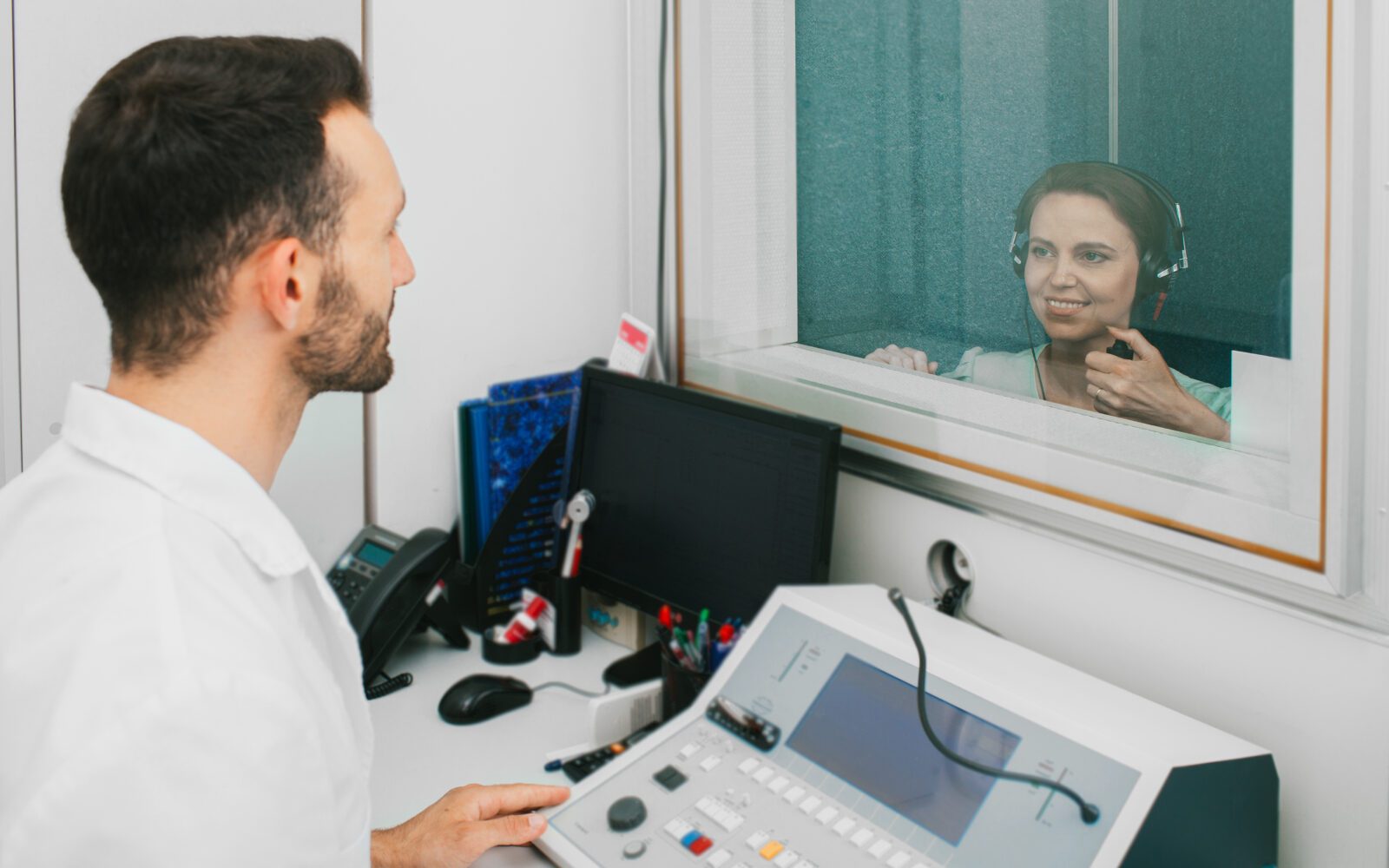When Should I Update My Hearing Aids?
If you’ve been wearing hearing aids for a while, you’re

By: nick | March 30, 2023
Most of us will consider an annual physical. Regular dental and vision appointments are standard for anyone keeping tabs on their health. However, for some reason the same attitudes don’t pertain to screening for hearing loss. For this reason hearing loss often goes undiagnosed and untreated, leading to a wide array of health complications which begin with communication, but gradually progress into chronic depression, social isolation, safety concerns affecting mobility and an increased likeliness of cognitive decline and dementia. It’s important that attitudes around hearing health have to change and part of this is a general understanding of how often you need to test for hearing loss.
Hearing Loss is Gradual
Part of the issue is that many people live with hearing loss for years before realizing they have a hearing problem. This is because hearing loss is often a gradual decline occurring over years. As it incrementally becomes worse, people unconsciously adapt to the loss. It’s not until you struggle to hear a sound others are talking about that you may start to realize you have a bigger problem. In many cases it’s the people you spend the most time with who will notice a hearing loss before you. If they suggest that you have a hearing loss, be sure to avoid defensiveness. Knowing you may have a hearing loss is the first step towards getting treatment.
Routine Hearing Tests
Catching hearing loss early is essential before the many health complications of hearing loss can progress to levels which are often difficult or even impossible to reverse. The longer you live with hearing loss, the less treatment options you have. In addition, while rifts in relationships due to hearing loss can slowly be repaired with clearer communication, other health risks of hearing loss such as accidents due to decreased sense of surroundings or dementia cannot be undone.
How Often Should I Get a Hearing Test?
How often you need a hearing loss depends on certain factors. For most people a hearing loss or screening is only required every decade.
Age: Age induced hearing loss is the most common cause of hearing loss affecting one in three over 65 years and up and half of those 75 years and older. The risk of hearing loss goes up the older we get so after 50 years and up we recommend hearing exams every three years.
Family history: Age related hearing loss runs in families. Genetics is part of what causes the breakdown of the cells of the inner ear which send sound from the ears to the brain. If your parents on either side have or had hearing loss, it’s important to test every one to three years.
Occupational exposure: If you work in a noisy environment such as law enforcement, nightlife, agriculture, manufacturing, or construction the risk of hearing loss is more severe. While it’s important to wear hearing protection and take listening breaks, mistakes are more likely. This is why you should test every three years for hearing loss.
Hearing Aid Wearers Also Need Hearing Tests
If you already have hearing loss, testing for hearing loss may feel counter intuitive. However, hearing loss is a progressive issue which often gets worse over time. Even if you’ve been diagnosed with a hearing loss it’s still essential that you take the same safety precautions around hearing loss as anyone else, including wearing hearing protection, taking listening breaks from noise, moving away from the source of a sound if it seems too loud and taking care of your overall health to support cell health of the inner ear. In addition, attend annual hearing exams to make sure your hearing aids are still supportive of your hearing loss. Often a hearing exam may reveal that you need a modification in programming. In some instances your current hearing aids may no longer be able to support your particular hearing loss anymore and it’s time for an upgrade.
Today’s hearing aids have come a long way in the past 20 years, offering a wide range of features to customize your listening experience. To find out more, don’t hesitate to book your next hearing exam with us today. We can go over your options and find the best hearing treatment for you!

If you’ve been wearing hearing aids for a while, you’re
By: admin | May 5, 2022

According to a World Health Organization estimate, about 466 million
By: admin | May 5, 2022

The following scenario will be familiar to anyone who suffers from hearing
By: admin | March 22, 2022
